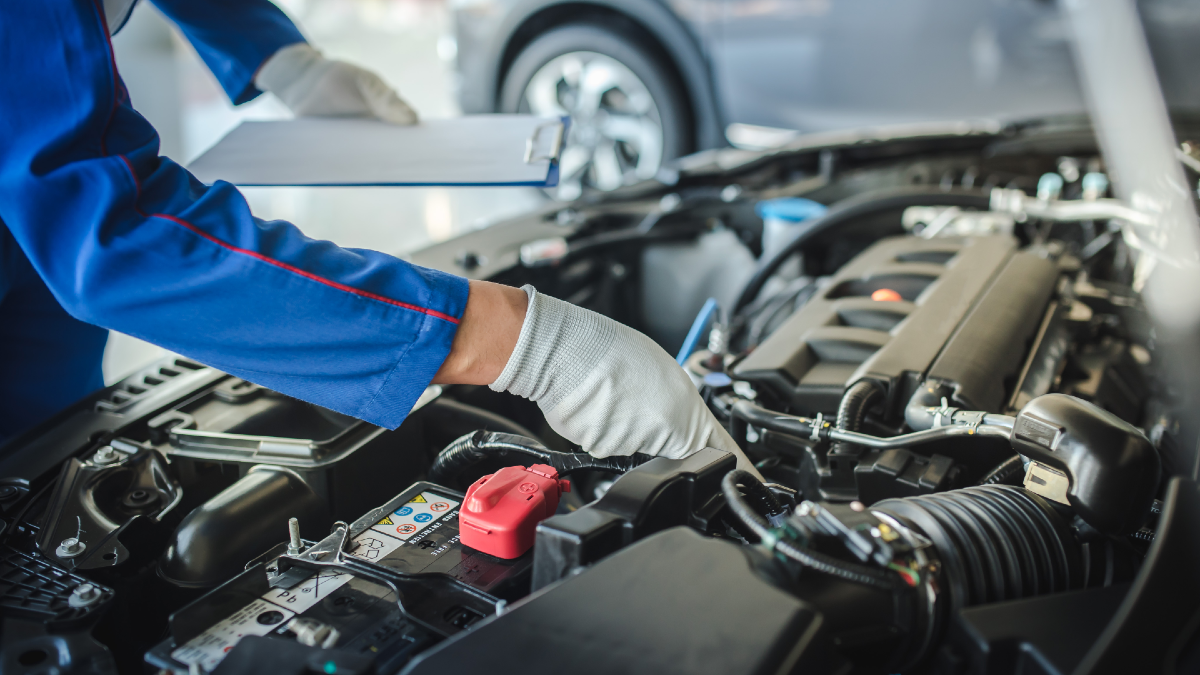
10 Things You Should Know About Car Warranties
Car warranties are part of every new vehicle we purchase, but do you know what they cover? You might find out there are many things you didn’t know.
Most of us associate the warranty of a vehicle with required repairs that are performed at the cost to the dealership or automaker, but not to you as the vehicle owner. These protections have some stipulations and clauses that you must be aware of when you need to have your car fixed. Let’s dig in and see if there’s anything you can learn with these ten items.
1. A Car Warranty is a Contract
Wait a minute! When you purchase a car, aren’t you signing a contract to buy the vehicle? Is a vehicle warranty also a contract that goes along with the purchase? Yes, it is. The warranty is a contract between you and the automaker or provider. This contract basically says you will ensure the vehicle stays updated with its service and maintenance needs while the automaker will pay for repairs when a defective part or workmanship problem is discovered.
2.What Does a Car Warranty Cover?
Car warranties are made to cover issues related to defects and failures in how the vehicle was built. If your power windows, transmission, or electronics stop working, you should be able to take the vehicle back to the dealership to have the defective item repaired. If the factory warranty is still active, you won’t have to pay out of pocket for covered repairs. The parts and the labor to install them are both covered under most factory warranties. This is one of the most important aspects of these contracts.
3. Your Vehicle Warranty has an Expiration
This is common knowledge and one of the most important aspects of your warranty. The standard warranty period for new vehicles is three years/36,000 miles. The warranty expires whenever you hit one of these milestones, provided you’ve kept up with the scheduled maintenance. Some automakers offer longer bumper-to-bumper warranties, and most offer a powertrain warranty that covers the powertrain to a specified time and mileage number. When the powertrain warranty kicks in, you’re limited in the repairs and coverages you’ll enjoy.
4. What Doesn’t a Warranty Cover?
Most car warranties won’t cover a certain package of items or situations. The consumable items of your vehicle aren’t covered under the factory warranty. This means as your tires wear, the brakes need to be replaced, or the wiper blades fail, you need to pay to have these items replaced. Warranties also don’t cover the maintenance required or if you’re in a car accident. These limitations make perfect sense. You’re required to keep the car in good repair and well-maintained if you expect the automaker to cover your vehicle with the warranty.
5. Recalls are Different from Warranties
The bumper-to-bumper warranty of your vehicle covers any defects or failures of the vehicle under normal driving conditions. Your warranty isn’t limited to safety issues. Most recalls are only related to safety problems with a vehicle. Cars that are no longer covered under warranty could still be subject to recalls if safety problems are discovered later in the ownership period. Recall repairs are always free, regardless of the age or mileage of the vehicle, and should be completed because they often relate directly to the safety of driving the vehicle.
6. Why Types of Warranties Are Available To You?
The automotive market is filled with cars that have coverages that could work for you. The car warranties of your vehicles depend on the age of the car when you buy it and what’s offered. New cars come with a comprehensive warranty and a powertrain warranty. Used vehicles can be enjoyed with an extended warranty from a provider, or a certified pre-owned vehicle might have an extended warranty from the automaker. Most used cars have a short coverage period to allow you to discover issues and return the car if something troubling is found.
7. Can You Have a Warranty as the Second Owner of a Car?
The age and mileage of the vehicle when you purchase it will determine whether or not you can get a warranty as the second owner. If the mileage is low enough, you might have some of the factory warranty still available to you. These car warranties are transferrable to the new owner, offering you the coverage you need. If you purchase a certified pre-owned vehicle, you typically receive a warranty from the original automaker.
8. Do You Need a Warranty if You Have Car Insurance?
Yes, and you’re required to have car insurance to register your vehicle with your state. Car insurance covers your vehicle in case of an accident unless you opt for only liability coverage. If you find a defect in your vehicle, that’s not an insurance issue; it’s a warranty problem. If you’re in a car accident, that’s not a warranty problem, it’s an insurance issue. You must have car insurance, but your warranty could expire.
9. Should You Buy an Extended Car Warranty?
Extended car warranties offer coverage for longer than the factory or powertrain warranties give you. This is a great way to keep your vehicle covered from defects and problems for much longer than originally expected by the automaker. The rules of extended warranties are much different from factory warranties. Sometimes, you’ll find that your extended warranty has a deductible you must pay when you have a warranty claim and need your car to be repaired.
10. Are Extended Warranties Worth the Cost?
This is a tricky question. Some people have had good luck with extended warranties and love the protections offered. Others have realized the high cost doesn’t add up if a vehicle doesn’t need warranty repairs. In many instances, adding a few riders to your car insurance policy could give you the same protections as an extended car warranty. The best thing to do is to weigh the differences between the cost of extended protection and potential repairs to the vehicle.
Now that you know more about car warranties, you’ll understand how your vehicle is covered when you buy a new or used model at your local dealership.
This post may contain affiliate links. Meaning a commission is given should you decide to make a purchase through these links, at no cost to you. All products shown are researched and tested to give an accurate review for you.



